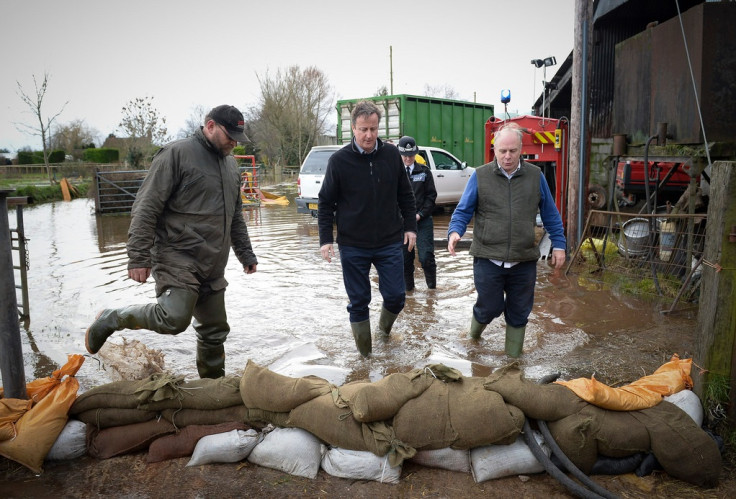UK Floods Crisis: Money No Object, Pledges Cameron

David Cameron's determination to show he has a firm grip on the government's response to the floods has not only seen him spending days visiting the worst hit areas, but also holding his first full press conference for more than nine months.
He had little to tell the assembled media that he had not already announced during one of his previous TV appearances or Cobra meeting statements. But that was not the point.
"Everything that can be done will be done" and "Money will be no object" were the television soundbites at the centre of his presentation. And that was the point.
"Money is no object in this relief effort. Whatever money is needed for, it will be spent. We are a wealthy country, we have a growing economy. We will spend what is necessary," he said.
This rare Downing Street press conference was part of the prime minister's campaign to show that he was personally in charge of the situation. No initiative or measure will be ignored and no cheque unsigned.
Although it appeared that that blank cheque would be restricted to the immediate relief operation while longer-term flood defence measures would be considered later.
He even cancelled a trip to the Middle East to devote all his time to the crisis.
While praising Environment Agency staff to the rafters, he notably refused to extend that to its boss, Chris Smith, who has been the target of ministerial allegations of lack of action. Cameron repeated: "Now is not the time for resignations."
He was also noticeably lukewarm in his praise for stand-in floods minister Eric Pickles who led those assaults on Smith and saw the government accused of engaging in a blame game. There will be no more of that while Cameron is in charge.
The prime minister will continue to chair the Cobra meetings and will create a new cabinet committee to oversee longer-term recovery from the flood damage.
His Downing Street performance had one overriding objective: to ensure this genuine national emergency does not fatally undermine his leadership credibility or his government's reputation for competence.
The prime minister is painfully aware that it is unforeseen events that can knock even the most secure and well-disciplined government off course. His is neither.
Before he got a grip, he was forced to slap down ministers who were engaging in bitter finger-pointing over the floods and put virtually all normal government business on hold.
Every government department, from environment to defence, was put on emergency footing and the Treasury was ordered to open its coffers and spend "whatever was necessary".
He is facing demands from Labour leader Ed Miliband and others to ensure money is spent on flood prevention schemes and it is clear this is not a crisis that is going to abate within the next few weeks or even months.
The fallout will continue to buffet the government right through until the general election in May next year and the prime minister recognises this could prove a pivotal moment.
He will face criticisms for coming late to the crisis but he can not now be accused of failing to devote enough attention to it.
What happens next, however, is in the hands of the weather. And with a worse forecast, Cameron will need to ensure he really has done everything possible to handle it – whatever it might be.
© Copyright IBTimes 2025. All rights reserved.






















